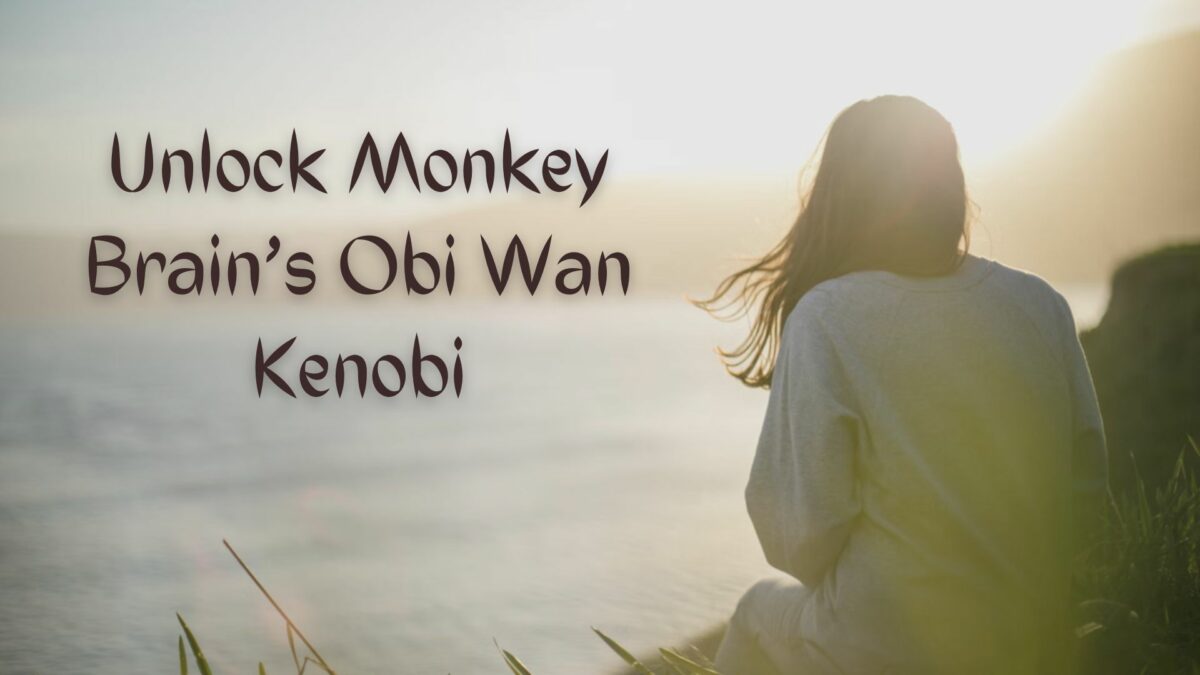“Who’s the more foolish? The fool or the fool who follows him?”
– Obi Wan Kenobi

When I was a cadre member at West Point conducting training for the new plebes who had arrived for their introductory summer training, I had a couple of guys in my squad who started off well, but their performance tapered off as the summer wore on. I’m sure I did the same thing – assuming I performed well in the beginning, and, given my level of stress, my performance probably started off poorly and got worse – but I was so stressed that I don’t remember much at all. I don’t recall being a world beater while I was a plebe, and when my grandfather died during President’s Day weekend of my plebe year, I really wanted to quit.
After his funeral, I told my mother that I didn’t want to go back. She told me that my grandfather had been proud of me and was always sure I’d make it through West Point.
That statement got me to go back. I wanted to be a person of whom my grandfather could be proud, and not making it through would have meant disappointing him.
A long time ago, in a galaxy far, far away, another young person was struggling with the stresses of his life. Luke Skywalker finds out about his true heritage from Obi Wan Kenobi – that of a Jedi master – and initially refuses to join in the fight against Darth Vader until the Empire kills his aunt and uncle. During his training, Luke has to grow up a lot, and he gives in to his temper and emotions. Obi Wan Kenobi is a calming influence on him, convincing Luke to trust himself and his emotions and to channel them into positive energy to fight against the Empire.
Obi Wan Kenobi reminded Luke of who he was, what his heritage was, and what was truly important to him – fighting the Empire to avenge the deaths of his father, his uncle, and his aunt (bonus points quiz: who was Luke’s aunt? No cheating! First right answer in the comments wins!). When Obi Wan Kenobi helped Luke affirm who he was and what that focus in his life was, Luke was able to succeed.
Research from Carnegie Mellon’s J. David Creswell and others confirms Obi Wan Kenobi’s ancient wisdom (OK…it was 1977) about focusing on your values and affirming the importance of those values in defining who you are when you’re undergoing a lot of stress.
In their experiment, they took undergraduate students who had been chronically stressed over the past month and gave them a difficult word association puzzle – heaping more stress on them! The experimental group of students was then asked what their most important value was and why it was important to them. They were also asked if that value had influenced their lives or was important in defining who they were.
High stress students who were reminded of their values and affirmed the importance of those values to them performed better on the test than any other group. They performed significantly (in both a statistical and descriptive sense) better than their equally stressed but non-affirmed counterparts and better even than their unstressed peers. The unstressed peers who went through the self-affirmation exercise also did better, albeit not dramatically as much, as the unstressed test-takers who didn’t go through the self-affirmation.
Does this mean that you should try to put yourself in a long-term stressful situation so that you can get the most out of self-affirmation? Absolutely not. It’s not worth putting yourself through that sort of health risk just to get a bump in performance!
However, there are times when a little self-affirmation will work.
- At work. Do you have a deadline bearing down on you? Have a crunch presentation to senior management that you need to nail? In a turnaround situation to save a flailing company where it’s all hands on deck? You could use a little self-affirmation.
- In the middle of paying off your debt. There is no easy and quick way to pay off debt. When you start off on paying it off and you get one of your debts knocked out, you have some momentum and some excitement because it’s something new, and you gained a quick victory. However, over time, it can become a slog. Some of those debts are going to take time and perseverance to knock out, and all the while, Monkey Brain is going to be howling because you’re cutting bananas out of his diet. When you start letting thoughts like “I’m never going to get this debt paid off,” that’s the time to engage in some self-affirmation.
- When you’re deciding how much to put away for retirement. Any time you take money away from current spending and sock it away for future spending, Monkey Brain is going to rattle his cage. He doesn’t care about the future you. All he wants is fun now. That future self is a stranger as far as he’s concerned, and Monkey Brain doesn’t like giving money away to strangers when he can spend it on himself. If you start thinking “retirement is a long way away, so why not have a little fun now?” you can engage in self-affirmation to remain steadfast in your plan.
How does one find his inner Obi Wan Kenobi?
According to the research from Cresswell, it’s not a long and difficult exercise. You don’t need to get out the “om” music, light incense, and go into a deep, meditative trance. All you have to do is to identify the one value that is most important in your life and then affirm to yourself that it is extremely important to you or that it defines who you are. Simple self-affirmation can go a long way in helping you do better in stressful situations.
I can’t make any guarantees about what self-affirmation will do for your light saber skills.
Self-affirmation: Jack Handey or Obi Wan Kenobi? Tell us your thoughts in the comments below!
Author Profile
- John Davis is a nationally recognized expert on credit reporting, credit scoring, and identity theft. He has written four books about his expertise in the field and has been featured extensively in numerous media outlets such as The Wall Street Journal, The Washington Post, CNN, CBS News, CNBC, Fox Business, and many more. With over 20 years of experience helping consumers understand their credit and identity protection rights, John is passionate about empowering people to take control of their finances. He works with financial institutions to develop consumer-friendly policies that promote financial literacy and responsible borrowing habits.
Latest entries
 Low Income GrantsSeptember 25, 2023How to Get a Free Government Phone: A Step-by-Step Guide
Low Income GrantsSeptember 25, 2023How to Get a Free Government Phone: A Step-by-Step Guide Low Income GrantsSeptember 25, 2023Dental Charities That Help With Dental Costs
Low Income GrantsSeptember 25, 2023Dental Charities That Help With Dental Costs Low Income GrantsSeptember 25, 2023Low-Cost Hearing Aids for Seniors: A Comprehensive Guide
Low Income GrantsSeptember 25, 2023Low-Cost Hearing Aids for Seniors: A Comprehensive Guide Low Income GrantsSeptember 25, 2023Second Chance Apartments that Accept Evictions: A Comprehensive Guide
Low Income GrantsSeptember 25, 2023Second Chance Apartments that Accept Evictions: A Comprehensive Guide

